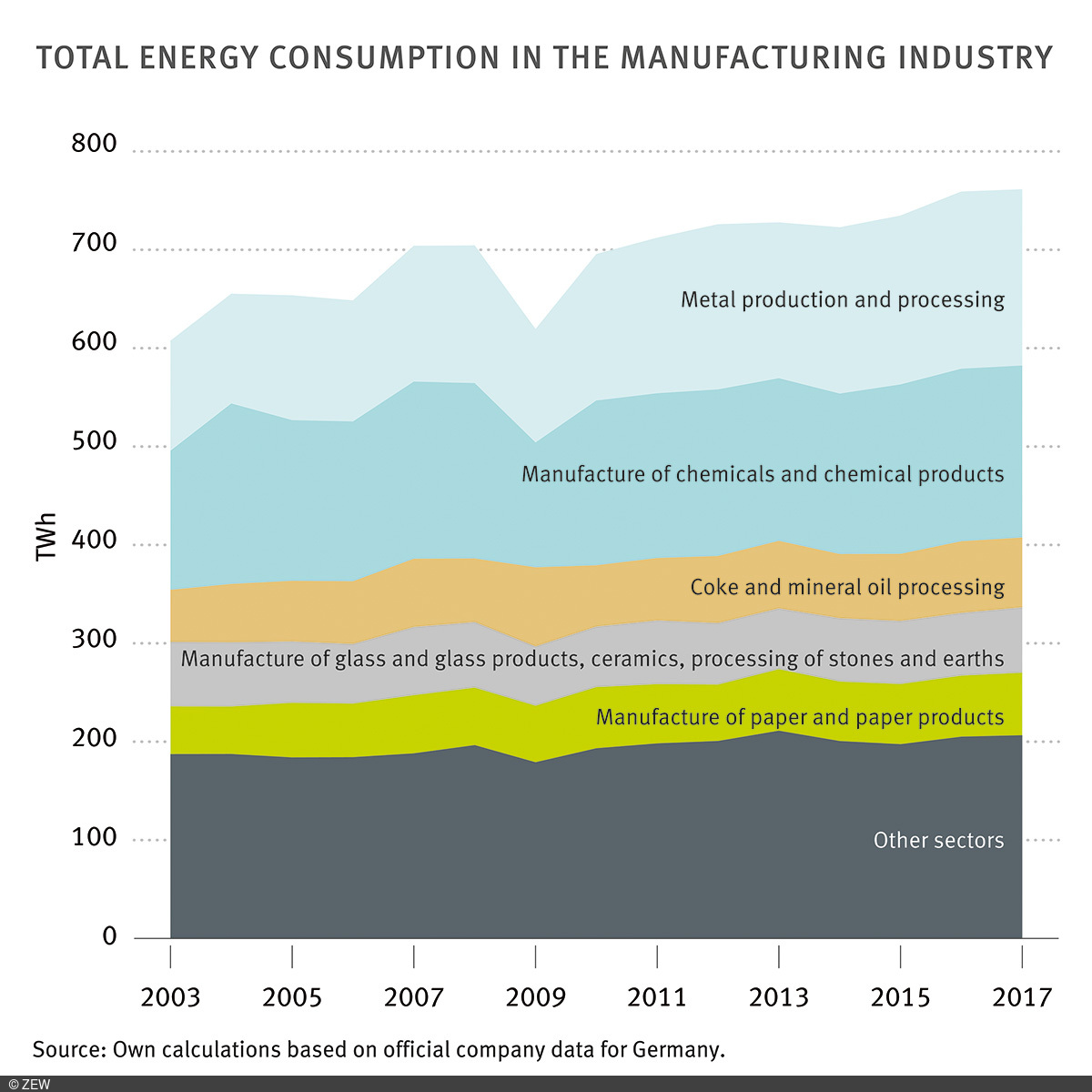Subsidisation of the Electricity Price: Reliefs Jeopardise Transformation
ResearchGerman Electricity Price Subsidisation Weakens Incentives for Energy Conservation and Makes Innovations Less Attractive
A broad subsidisation of industrial electricity prices, as with the German “Brückenstrompreis”, reduces the incentive to save energy, makes innovations less attractive, and jeopardises the transformation of the German economy towards carbon-neutral production. Recent research conducted by ZEW Mannheim and the University of Mannheim reveals that the industrial sector responds to increasing electricity prices by reducing its power consumption. At the same time, the study results do not provide empirical evidence that higher electricity prices have harmed competitiveness, as measured by revenues and employment.
“When we lower electricity prices, it weakens the incentive to conserve energy. An analysis of the Special Equalization Scheme (BesAR) reveals that businesses exempt from the EEG levy saved less electricity compared to non-exempt businesses,” explains Kathrine von Graevenitz, deputy head of the ZEW’s “Environmental and Climate Economics” Unit. “If Germany wants to achieve carbon neutrality, it must consider the future viability of energy-intensive industries. After all, Germany will only be able to generate a limited amount of electricity on its own in the future. At the same time, we need electricity across the board: for electric vehicles, heat pumps, and the electrification of the industry,” she adds.
Competitiveness not solely depends on energy prices
Energy-intensive sectors such as glass, paper, chemicals, and steel account for more than two-thirds of the total energy consumption in the manufacturing industry. Despite emissions trading and the EEG levy, from which some businesses were exempt, these sectors have actually increased their energy consumption in recent years up until 2017, rather than reducing it.
From a scientific perspective, there is no evidence of electricity prices having a negative impact on the international competitiveness of German industrial companies. For most businesses, the share of energy costs to revenue is well below five per cent. Energy costs are not the primary determinant of competitiveness for the majority of companies. Researchers emphasise that location-specific factors such as skilled workforce, robust infrastructure, political stability, and access to the domestic market are likely to be more relevant for international competitiveness.
Electrification necessitates strong incentives for energy efficiency
The climate targets can only be achieved through extensive electrification. Heat pumps are a hot topic as nearly 65 per cent of German households still rely on fossil fuels for heating, and not all of them can transition to biomass. Moreover, as of early 2023, Germany had 48.8 million registered cars, with only one million being electric vehicles. The electrification of car traffic alone will significantly increase the demand for electricity. Across all sectors, there will be a considerable surge in electricity consumption. To meet this demand, it is crucial to have strong incentives for energy efficiency in place. Discounted industrial electricity prices pose a challenge as they can undermine these incentives for improved energy efficiency.


